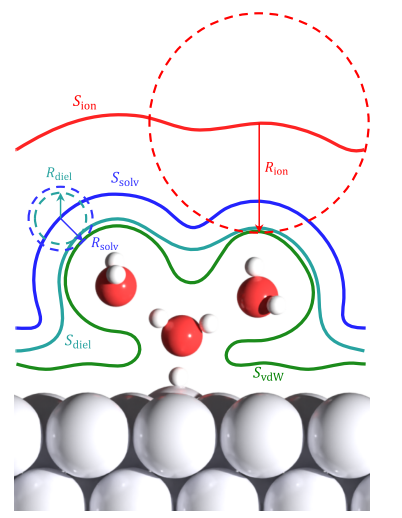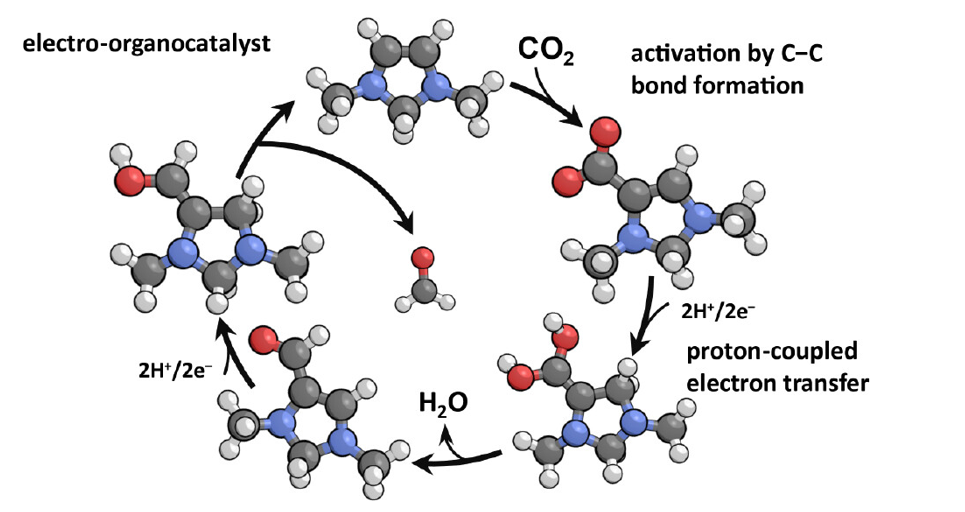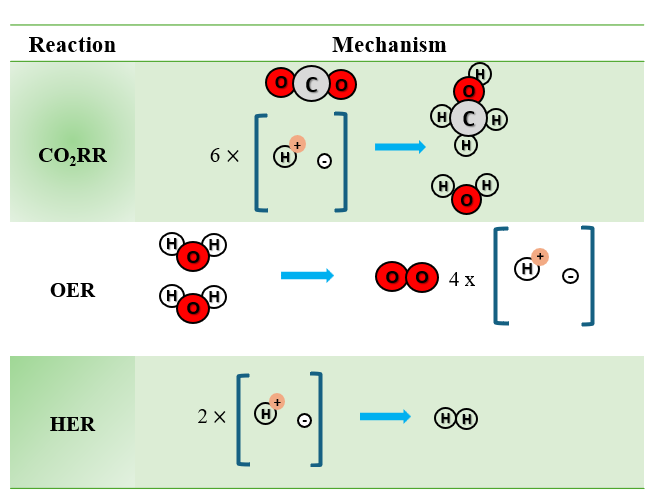Welcome to the Plaisance research group at LSU!
The main focus of the Plaisance group is on developing new classes of computational methods to fundamentally transform the state-of-the-art for modeling heterogeneous catalytic and electrocatalytic processes. A key difference that separates us from other method development groups is that we actively apply the methods we develop to answer the most challenging questions in electrocatalysis, rather than applying them only to simpler model systems. By routinely applying our methods to systems at the forefront of current catalysis research, we are uniquely positioned to identify the most crucial methodological gaps facing the computational catalysis community.
Furthermore, we focus on developing computational tools that are easily adoptable by the community, integrating these methods into widely used software like VASP.

Schematic of cavity function construction a Pt(111) surface

CO2 reduction on electro-organocatalyst

Mechanism of CO2 reduction, HER and OER